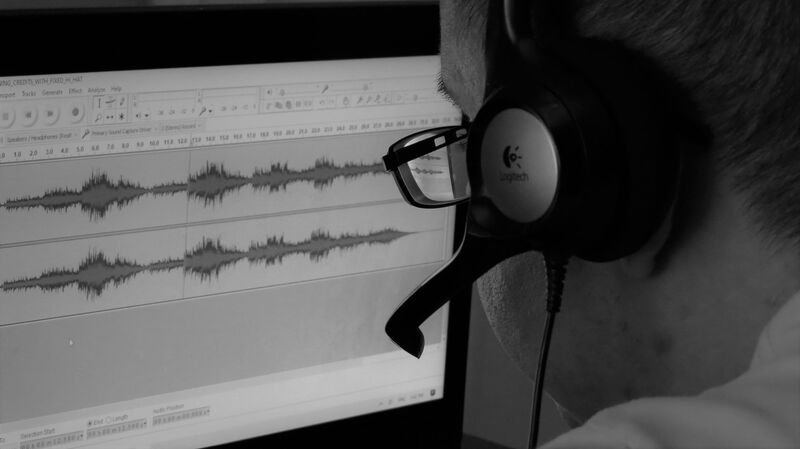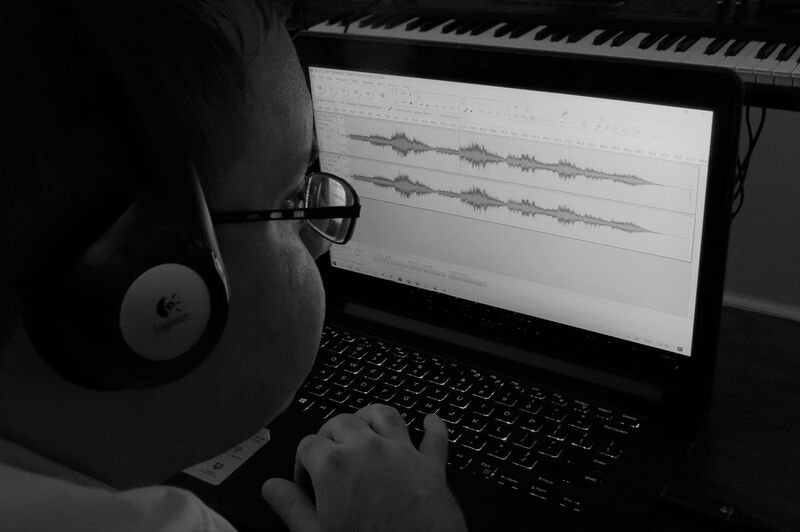- Scoring for podcasts is mostly similar in scope to writing music for film, television, and video games. The process usually involves collaborating with a director or production team. The key difference with podcasts, when compared to the other media that I just mentioned, is that podcasts lack visuals and rely more on aural aspects to guide the programming.
- As with most other forms of media, collaborating on a podcast as a composer requires a bit of creative restraint. That might sound strange on the surface. However, it is a necessary step, because the process relies more on group effort than on individual ego. The composer must learn to write the music that is being asked of them by the director or production team. This means that the composer must pay attention to the overall tone or genre of the podcast so that they can create music that matches. I decided to use eerie electronics with the Reaktor 6 Player when working on the music for Sticks Shift Incorporated: music that matched the suspenseful, sci-fi atmosphere of the podcast drama.
- Because podcasts do not include a visual element. It is important for composers to adhere to aural cues or moods based on what the director or team want. This process frequently involves reading and studying the podcast script (if given access to one) and coming up with possible musical themes or ideas based on that script or specified mood.
- Follow “Non-Disclosure Agreements,” or NDAs. Collaborating on a podcast as a composer means becoming a vital part of a team, which means that everyone on that team needs to follow the same rules at the outset of the podcast production. Composers are no exception. They must not reveal any crucial plot points for a new podcast episode or program before it is released. Violating a NDA spoils the podcast for everyone and comes off as unprofessional, because it sends the wrong message to the rest of the team that the composer cannot be trusted… which can either lead to the composer getting fired or the production halted.
- Adapt and become flexible when scoring for podcasts. Learn to compose the required music for the podcast within a limited schedule (about several weeks, to one month). Expect to edit your music when, or if, the director wants changes. Arguing with the director at that stage in the process does nothing, which brings me to my next point: perhaps, one the most important points in this discussion and what composers should avoid at all costs.
- No badmouthing the director or production team. Ever. Directors and production teams help composers by commissioning them for work. This should go without saying, but composers who work in any form of entertainment media should never publicly complain about their current project or their employer/commissioner. It does not matter if the project is paid or unpaid. That kind of attitude implies that the composer is incapable of working together with others, which reflects poorly on the rest of the team. It also decreases the chances for possible future employment by other podcast production teams because the composer could be rejected or banned from public online spaces offering work in entertainment.
- Be prepared for anything. What I am talking about here is anticipating moments when podcasts suddenly stop mid-production. This can happen for several reasons. The director or creator chose another composer, or their main idea for the program did not fully come to fruition. Whatever the circumstances are, refer to the previous tip. Getting angry does not solve the problem. The best thing to do in situations like that is to accept that it happened and move on by searching for another project.
|
With the release of the Sticks Shift Incorporated podcast soundtrack (see News), I would like to take some time to share with you some advice that I have regarding composing for podcasts. This information is based primarily on my personal experience with scoring for this medium and is not meant to be definitive. This is more like an extension of the Musochat forum discussion that I gave in July 2018 about “Commissioning and Collaboration Etiquette,” in that I will talk about what composers should expect when collaborating on podcasts and how they can exercise common sense to maintain professionalism:
0 Comments
Leave a Reply. |
AuthorDMA. Composer of acoustic and electronic music. Pianist. Experimental film. Archives
July 2024
|


 RSS Feed
RSS Feed
